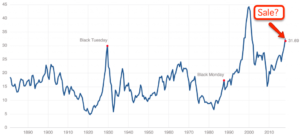On Monday morning, I felt queasy and queasy stomached.
The Dow had opened for trading that day 1,000 points below where it had closed last Friday – after losing an additional 1000 points the week prior – while both S&P 500 and NASDAQ indexes experienced similar declines, falling nearly 18% since their all-time highs earlier in 2018.
Personal finance was becoming unmanageable. I was down tens of thousands, having lost multiple years’ living expenses within one week. This left me feeling vulnerable and unsettled.
What caused this sudden dramatic plunge? GDP growth in China had begun to decrease year-on-year from an incredible 8% rate to an already somewhat reduced, yet still phenomenal, 7% rate, leading millions of inexperienced Chinese retail investors who had piled into the market to desperately exit for fear of losing some of their gains from last year – prompting an immense decline in the Shanghai Composite index and further disillusionment among new retail investors who piled in during a year in which all negative news suddenly burst their bubble.
At that very moment, it became important for me to help regulate my emotions…
“You have been here before. In 2008, panic caused you to sell at the bottom and lock in losses before buying back in at higher levels later on.” Now look where the market stands today – China doesn’t matter nearly as much and yet the market seems overreacting dramatically. Selling now would lock in losses while simultaneously setting yourself up for future gains at higher levels later on.”
So I didn’t, and here’s what happened next…
On August 18th, the Dow recovered 900 points – before falling 700 again before close. August 24th saw 600 point gain – one of the largest single day gains seen in years.
Thursday brought news that U.S. Q2 year-over-year GDP growth had been revised upward from 2.3% to 3.7% – marking its fastest annual pace since at least 2002. Also on Thursday, consumer confidence surveys indicated the highest levels ever seen since 2008.
On Friday was a calm trading day. Rationality triumphed over emotion and within a week the market had recovered half its losses; had I given in to panic-selling instincts and panic-sold, these return gains would have been lost.
On Wednesday morning, one of my coworkers in his mid 20’s sent me an urgent text message with this warning:
“Hi, I noticed I lost $3,000 from my 401K recently, which surprised me as I thought its returns were guaranteed with its match feature.
“No. A 401K match does not guarantee market returns; investing returns are never certain. (I wisely replaced this response with: “So? Consider yourself damn lucky – YOU PUNK!”))








+ There are no comments
Add yours